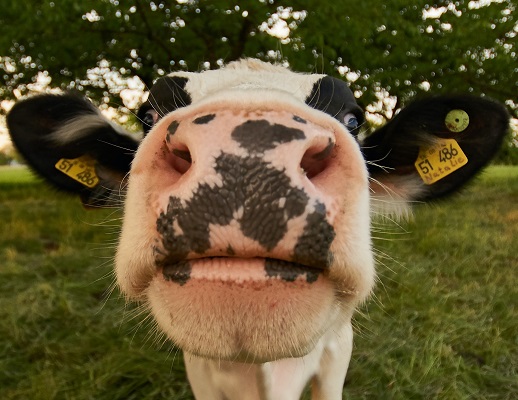You are likely familiar with the war on meat, but in recent years, the antagonists have upped their game. Meat puppets among the ideologically complicit media happily repeat their claims without a spec of balanced reporting. And everyone is told to believe something misleading or just false.
Livestock, or meat animals, are not a plague on all our houses. They are beneficial in several ways while contributing next to nothing to emissions – if that’s something you are convinced is a problem.
The anti-meat movement likes to complain about how livestock consumes too much people-food and takes up too much land we could use to grow crops. But 90% of what ruminants eat is non-human edible, and two-thirds of the “agricultural land on which they graze is marginal or unstable to grow food humans can eat.
Related: The Elites’ Want You to Eat Bugs – But They are Toxic to Humans
Those are significant numbers. Removing meat from our diets frees up minimal arable land or food grown for humans.
A significant portion of agriculture grown for people is waste—shells, hush, skins, all the parts that people cannot use or digest. There is also significant agricultural waste – food made and prepared that lands in the waste stream. Over 80% of all food waste is agricultural human-edible food.
But you can feed most or all of that to cows, goats, sheep, and pigs. Livestock will eat the shells, hulls, husks, skins, and the people-food waste and convert them into foods we can eat, which have significantly more necessary protein and nutrients per pound than many, if not most agricultural products.
Neither cows, sheep, nor other livestock “creates” emissions that are not already present on the planet. The grasses grow by absorbing naturally occurring CO2 (airborne fertilizer) and rainwater. The animals eat and absorb or release back these back into nature. Nature eventually converts that back into its component bits which return to the earth as water and carbon dioxide, which makes possible the plants that the next generation of animals will eat.
Speaking of fertilizer. It is another byproduct of what we feed to livestock and is responsible for producing 50% of the world’s agricultural fertilizer, while 80% of the world’s “livestock emissions” occur in developing countries.
The West only accounts for 20%, and if you have not yet guessed, Americans’ total contribution is a fraction of the total global emissions, while we can produce 18% of the world’s meat with only 6% of the worldwide herd.
So, the next time you hear a 3-minute report on the news about how much better it would be if we stopped eating meat, odds are good they are leaving out details and not reporting the downsides of trying to shift everyone to a meatless diet.
And then there’s this, which I’ve shared before. And while it’s from a fictional television show, it is a simple fact.
Almost none of these “reports” begins to address the impact of food agriculture or its emissions footprint in comparison, probably because livestock is less and more crops would be that much more as would the waste left behind that we no longer have livestock to eat.
And what does adding agricultural waste do when it rots? It releases “global warming” gases that end up in the air without producing anything.
